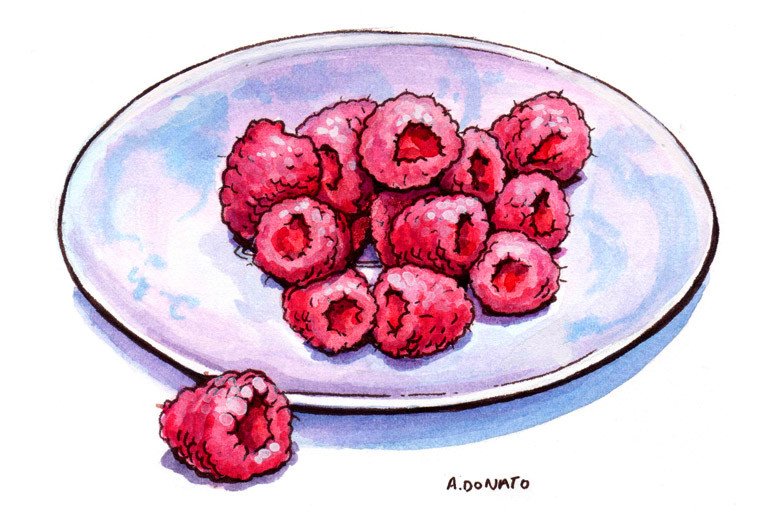
For Patients & Caregivers
Tell your healthcare providers about any dietary supplements you’re taking, such as herbs, vitamins, minerals, and natural or home remedies. This will help them manage your care and keep you safe.
Ellagic acid is found in many foods that are part of a healthy diet, but there is no evidence to support its use for cancer treatment.
Ellagic acid is a naturally occurring compound called a tannin, found in red raspberries, strawberries, pomegranates, and walnuts. In laboratory studies, ellagic acid showed antiviral, antibacterial and antioxidant and cancer-preventive properties.
Small clinical studies have shown that ellagic acid may lower cholesterol and decrease lipid peroxidation in patients with metabolic syndrome; and may help restore cognitive performance associated with mild age-related decline. Consuming red raspberries may help improve endothelial function.
- To lower cholesterol
One study found that consumption of a drink made with freeze-dried strawberry powder for 4 weeks lowered total cholesterol and LDL levels in obese women with metabolic syndrome. Further research is needed to confirm this effect.
Do Not Take if:
- You are taking drugs that are substrates of Cytochrome P450: Ellagic acid inhibits cytochrome P450 2A2, 3A1, 2C11, 2B1, 2B2 and 2C6 enzymes, and may increase the risk of side effects of these drugs. Clinical relevance is not known.
For Healthcare Professionals
A phenolic compound derived from ellagitannins commonly found in red raspberries, strawberries, pomegranates, and walnuts, ellagic acid has antiviral, antibacterial and antioxidant properties (1) (2) (8). Small clinical studies have shown that it may lower cholesterol in patients with metabolic syndrome (7); restore cognitive performance associated with mild age-related decline (18); lower glycemic index in diabetic patients (22); and improve quality of life in those with irritable bowel syndrome (23) (24). In addition, consumption of red raspberries was associated with improvements in endothelial function (19); and a pomegranate extract may have beneficial effects by inducing ellagitanin metabolite formation and changing microbiota (20).
Pre-clinical studies indicate anticarcinogenic effects against liver, esophageal, prostate, and colorectal cancer cell lines (3) (4) (5) (6). Ellagic acid was also shown to induce apoptosis and potentiate all-trans retinoic acid myeloid differentiation therapy in human leukemia HL-60 cells (9). In another study, pomegranate-derived ellagitannins exhibited anti-aromatase activity and suppressed testosterone-induced breast cancer cell proliferation, but ellagic acid did not have such effects (10).
In an exploratory study of patients with biochemically recurrent prostate cancer, grape skin comprising ellagic acid, quercetin, and resveratrol was reported to be safe and to affect a non-significant increase in prostate-specific antigen doubling time (21). Further research is needed to assess the anticancer potential of ellagic acid.
Red raspberries, strawberries, pomegranates, walnuts
- Hypercholesterolemia
Ellagic acid appears to inhibit chemical-induced esophageal carcinogenesis in animals (11). It down-regulates insulin-like growth factor IGF-II (6) and activates p53/p21 expression, leading to cell cycle arrest at the G1/S phase and apoptosis (12). In vitro studies report that ellagic acid protects cells from oxidative DNA damage caused by hydrogen peroxide and bleomycin (8). Ellagic acid’s ability to induce detoxification enzymes NADPH and quinone reductase contribute to some of its chemopreventive activities (13). Conversely, certain cytochrome P450 enzymes are inhibited by ellagic acid, preventing other carcinogens from being metabolized into more mutagenic forms (14) (15).